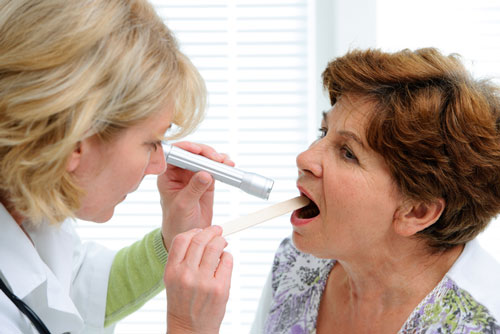Most of us know that the overuse of antibiotics has caused the rise of deadly drug-resistant “superbugs.”
Thanks to doctors handing out antibiotics like candy, these powerful germs now kill 23,000 Americans every year.1
But there’s another alarming antibiotic danger that your doctor won’t tell you about. In fact, he may not even know about it. It was just recently discovered…
The study was done at Case Western Reserve University. Researchers looked at bacteria in the human mouth. They wanted to examine the effect the bacteria have on white blood cells that fight mouth infections.2
The scientists were specifically interested in certain immune cells that combat fungal infections such as candida. They discovered that the bacteria that naturally live in our mouths are great at helping these immune cells do their jobs. Together, they reduce infection and inflammation.
Researchers also found that antibiotics interfere with these defenses.
Professor Pushpa Pandiyan of the School of Dental Medicine led the study. She says “antibiotics can kill short-chain fatty acids” produced by the body’s own good bacteria.
“We have good bacteria doing good work every day. Why kill them?” said Professor Pandiyan. “As is the case with many infections, if you leave them alone, they will leave on their own.”
She emphasized that needless overuse of antibiotics “is not helpful.”
This research shows antibiotics actually promote candida. Candida is one of many types of fungus that live on our bodies. In small amounts it causes no problems. But if it grows out of control it can cause thrush (a throat infection) or genital yeast infections in women.3
Worse still, studies have linked candidiasis (candida infection) to increased risk of cancer. It is associated with higher chances of lip cancer, non-Hodgkin’s lymphoma, pancreatic cancer, skin cancer, and thyroid cancer, among others.4
Unless you have a potentially life-threatening infection, avoid antibiotics. Instead, head off common infections with these natural immune boosters…
5 Natural, Safe Antibiotic Alternatives
- Goldenseal (Hydrastis): This plant is native to the American Northwest. Supplements help treat sore throats and digestive infections.
- Manuka honey: It’s made by bees in New Zealand and Australia. It comes from the nectar of the Manuka tree. Place a dab of it on cuts to stop them from getting infected.
- Oregon grape (Berberis Aquifolium): When used as a tea, it is effective against urinary tract and digestive infections.
- Garlic: The pungent bulb has been used as a medicine for thousands of years. Modern research confirms it works against common earaches, pneumonia, MRSA, the flu, and candida. Take garlic supplements to help fight these infections or as a preventive measure.
- Echinacea: Traditionally, echinacea was used to treat diphtheria, blood poisoning, and other bacterial diseases. Today it’s mostly used to fight viral infections such as colds and flu. It is effective against MRSA.
One more thing… If you must take an antibiotic for a serious bacterial infection, be sure to use a quality probiotic supplement afterward. It will help restore your body’s natural, healthy microbiome.
Editor’s Note: There are 31 secrets that build a super-human immune system… And we’ve put them all together for you in our urgent report, Bulletproof Your Immunity: Easy Ways to Protect Your Health.
You’ll discover the three most important vitamins your body needs this time of year—and where to find them… The little black pill that pulls toxins from your body—and can even help you avoid a hangover… And how to avoid the five dirtiest immune threats around.
Get all the details HERE.
Like this Article? Forward this article here or Share on Facebook.
References:
1 https://www.nbcnews.com/healthmain/23-000-killed-superbugs-us-each-year-cdc-says-8C11167661
2 https://www.eurekalert.org/pub_releases/2018-09/cwru-sad092518.php
3 https://www.webmd.com/skin-problems-and-treatments/guide/what-is-candidiasis-yeast-infection#1
4 https://www.ncbi.nlm.nih.gov/pmc/articles/PMC5609943/

